Smart doorbells have become increasingly popular in recent years, providing homeowners with a convenient way to monitor and secure their homes. With the ability to see and communicate with visitors remotely, smart doorbells have become an essential part of many households. However, as with any technology that collects and processes personal data, there are privacy concerns that come with using smart doorbells.
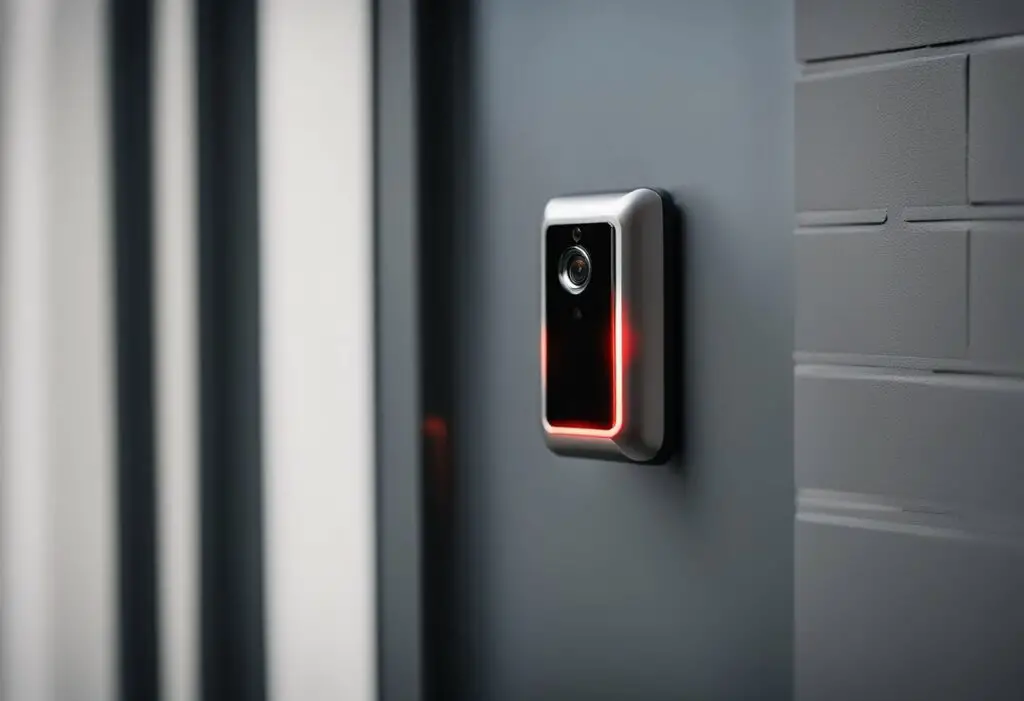
One of the most significant privacy concerns with smart doorbells is the potential for unauthorized access to user data. There have been reports of security vulnerabilities in some smart doorbell models that can expose user data, such as email addresses and Wi-Fi network information, to hackers. Additionally, there have been instances of smart doorbell manufacturers sharing user data with third-party advertisers, raising concerns about how this data is being used and who has access to it.
Despite these concerns, there are steps that homeowners can take to protect their privacy when using smart doorbells. By understanding the potential risks and taking proactive measures such as enabling two-factor authentication, regularly updating device software, and carefully reviewing privacy policies, homeowners can enjoy the benefits of smart doorbells while minimizing their risk of privacy violations.
Key Takeaways
- Smart doorbells have become popular for their convenience, but they also raise privacy concerns.
- Security vulnerabilities and data sharing with third-party advertisers are among the top privacy concerns with smart doorbells.
- Homeowners can protect their privacy by taking proactive measures, such as enabling two-factor authentication and reviewing privacy policies.
Understanding Smart Doorbells
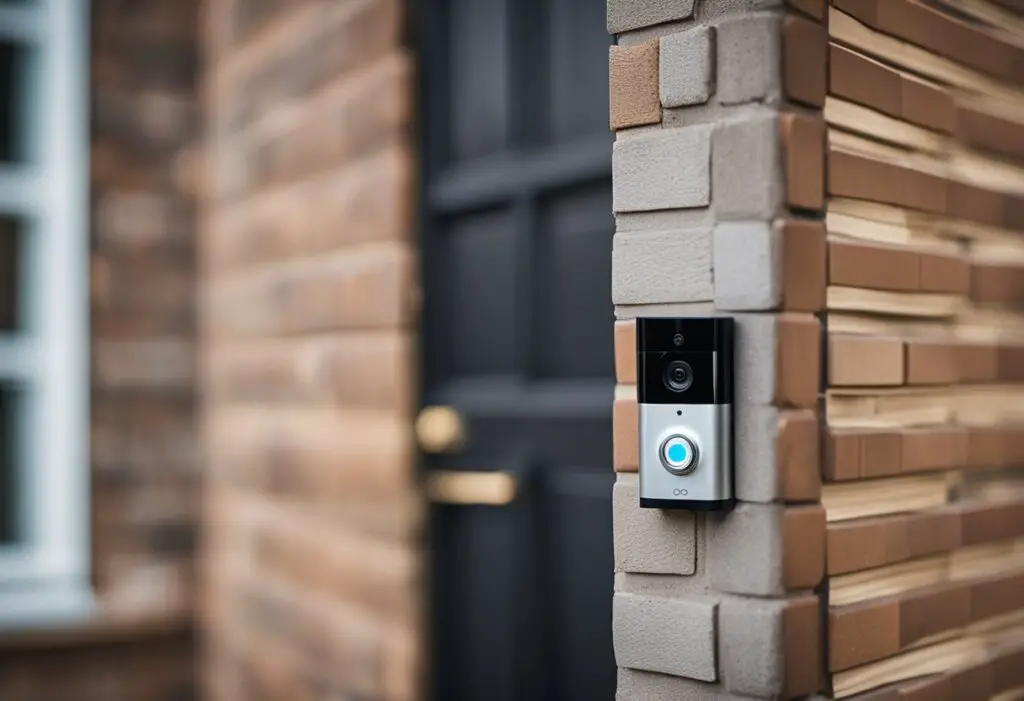
Smart doorbells are a type of smart home device that allows you to see and communicate with visitors at your front door from your smartphone, tablet, or computer. They typically feature a camera, microphone, and speaker, and can be connected to your home’s Wi-Fi network.
Smart doorbells are becoming increasingly popular as they offer convenience and added security. They allow you to answer the door without physically being there, which can be especially useful when you’re not at home. They also provide an added layer of security by allowing you to see who is at your door before answering it.
Smart doorbells can be an effective part of a home security system, but it’s important to understand their privacy concerns. Since they are constantly recording and transmitting data, there are concerns about who has access to this information and how it is being used.
Some smart doorbells lack important security features such as two-factor authentication, which can make them vulnerable to hacking. Additionally, some smart doorbells may store data on servers that are not secure, which can make your personal information vulnerable to theft.
To protect your privacy when using a smart doorbell, it’s important to choose a reputable brand that has a strong track record for data security and privacy. You should also enable two-factor authentication and regularly update your password.
Overall, smart doorbells can be a useful addition to your home security system, but it’s important to understand their privacy concerns and take steps to protect your personal information.
Major Players in the Market
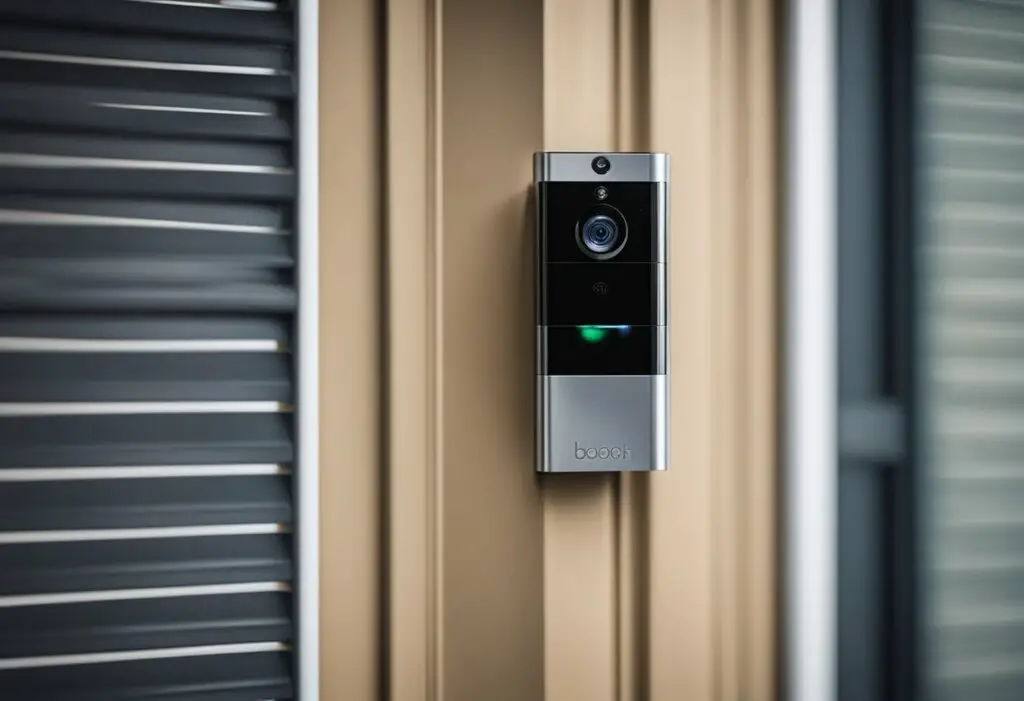
When it comes to smart doorbells, there are a few major players in the market that dominate the industry. These companies have been around for a while and have established themselves as trusted brands in the market. Some of the major players in the smart doorbell market include Ring, Amazon, Nest, and Google.
Ring, which is owned by Amazon, is one of the most popular smart doorbell brands on the market. The company offers a wide range of smart doorbells that come with a variety of features, including motion detection, two-way audio, and live video streaming. Ring also offers a subscription service that allows users to store their video footage in the cloud.
Amazon, which acquired Ring in 2018, has been pushing the smart doorbell market for years. The company has launched several smart doorbells under its own brand, including the Amazon Echo Show, which comes with a built-in camera and can be used as a smart home hub.
Nest, which is owned by Google, is another major player in the smart doorbell market. The company offers a range of smart doorbells that come with a variety of features, including facial recognition, two-way audio, and live video streaming. Nest also offers a subscription service that allows users to store their video footage in the cloud.
Google, which acquired Nest in 2014, has been expanding its smart home offerings in recent years. The company has launched several smart home devices under its own brand, including the Google Nest Hub, which comes with a built-in camera and can be used as a smart home hub.
Overall, these major players in the smart doorbell market offer a wide range of features and services that cater to different needs and preferences. However, it is important to consider the privacy concerns associated with these devices before making a purchase decision.
Privacy Concerns with Smart Doorbells
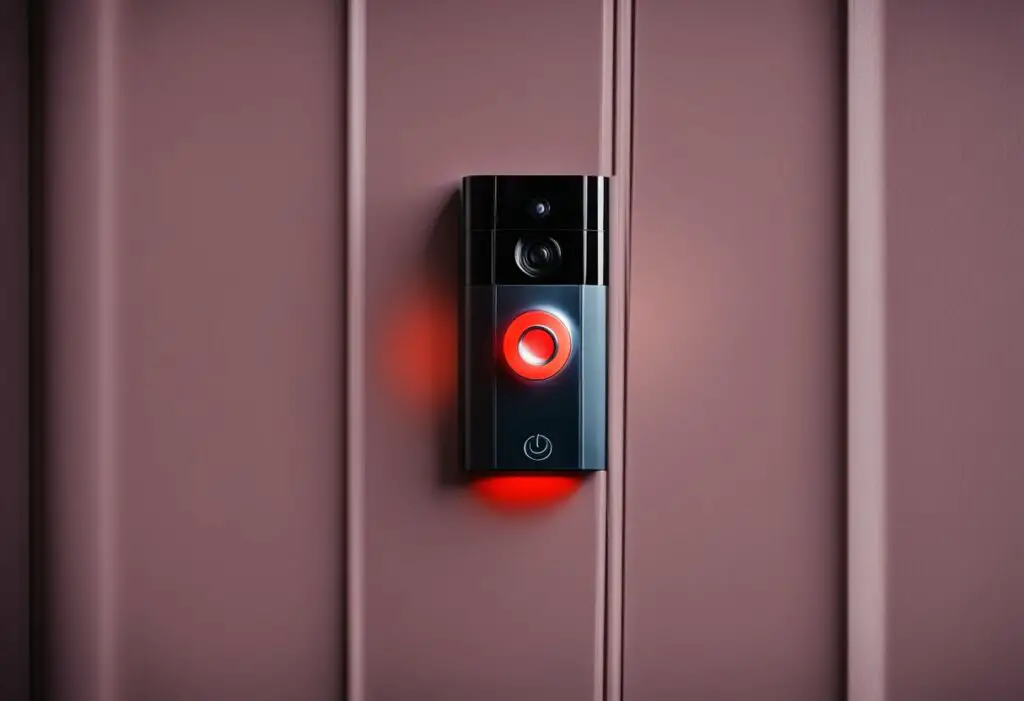
Smart doorbells are becoming increasingly popular due to their convenience and security features. However, they also raise privacy concerns, particularly when it comes to personal data and information.
One of the main issues with smart doorbells is data collection. When you use a smart doorbell, it collects data about you, your family, and your visitors. This includes video footage, audio recordings, and other information that can be used to identify individuals. This data can be vulnerable to hacking, and if it falls into the wrong hands, it can be used for nefarious purposes.
Another concern is the lack of transparency when it comes to data privacy policies. Many smart doorbell companies do not provide clear information about how they collect, use, and share personal data. This can make it difficult for users to make informed decisions about whether or not to use these devices.
Additionally, smart doorbells can raise privacy concerns for visitors to your home. They may not be aware that they are being recorded, and they may not have the opportunity to opt-out of being recorded. This can be particularly problematic for delivery drivers, maintenance workers, and other individuals who visit your home for work-related purposes.
To address these privacy concerns, it is important to carefully review the privacy policies of any smart doorbell you are considering purchasing. Look for companies that are transparent about their data collection practices and offer clear options for users to control their privacy settings. It is also important to take steps to secure your smart doorbell, such as using strong passwords and keeping your software up-to-date.
Overall, while smart doorbells can offer many benefits, it is important to be aware of the potential privacy risks and take steps to mitigate them.
Security Vulnerabilities of Smart Doorbells
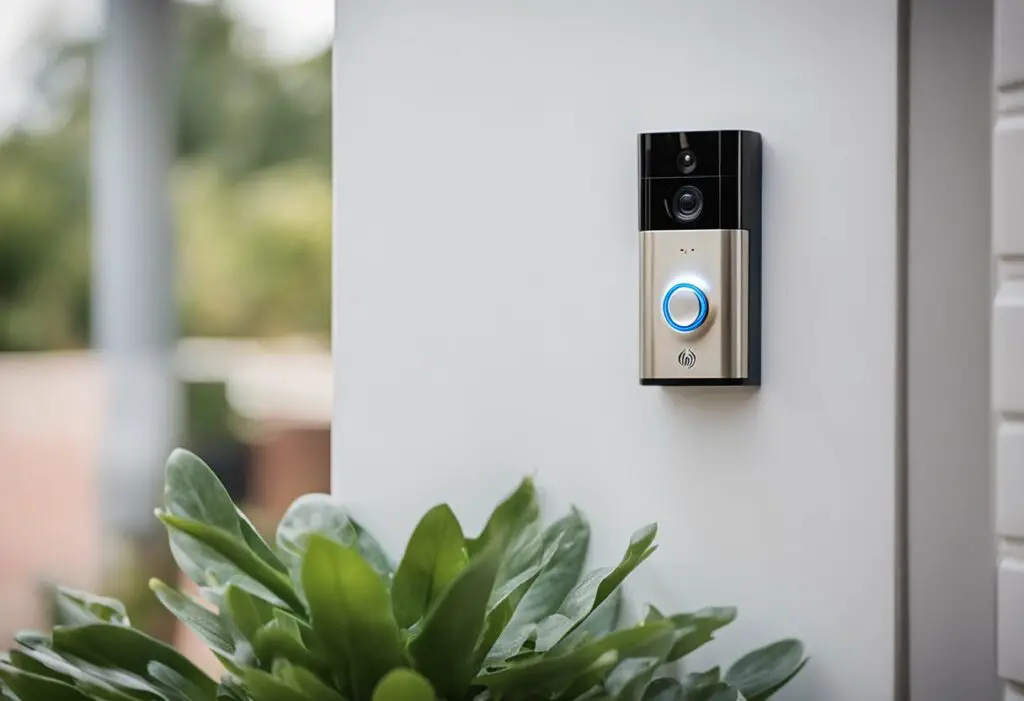
Smart doorbells have become increasingly popular in recent years, but with this rise in popularity comes concerns about their security. Several studies have found security vulnerabilities in smart doorbells that can potentially expose user data and allow hackers to gain access to your home security system.
One of the most critical findings from tests conducted on several smart doorbell models is the discovery of security vulnerabilities that can expose user data like email addresses and passwords. These vulnerabilities can potentially allow hackers to access your home security system, putting your privacy and security at risk.
Another concern is the potential for hackers to gain access to the video feed from your smart doorbell. This can allow them to spy on your home and monitor your movements, which can be a serious security risk. Some smart doorbells have also been found to have weak encryption protocols, which can make it easier for hackers to gain access to your data.
It’s important to note that not all smart doorbells are created equal when it comes to security. Some models have stronger security features than others, so it’s important to do your research before purchasing a smart doorbell. Look for models that use strong encryption protocols and have a proven track record of security.
In conclusion, while smart doorbells can be a convenient and useful addition to your home security system, it’s important to be aware of the potential security risks. By taking the necessary precautions and choosing a model with strong security features, you can help protect your privacy and security.
Role of Two-Factor Authentication
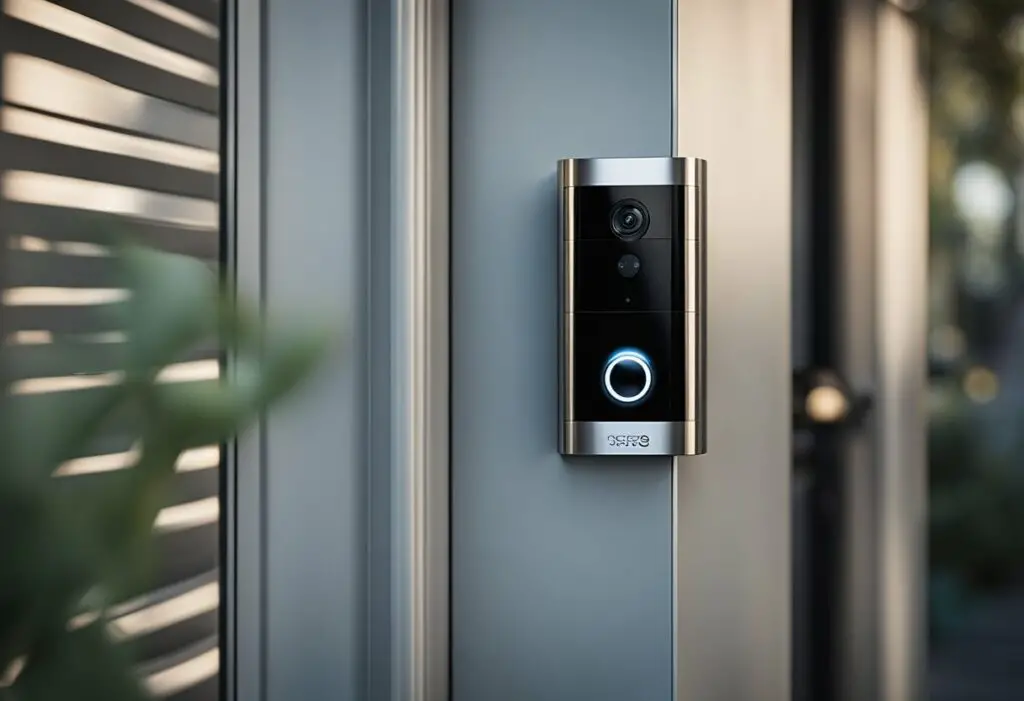
Two-factor authentication (2FA) is a security feature that adds an extra layer of protection to your smart doorbell. It requires you to provide two forms of identification to access your account, such as a password and a unique code sent to your phone. This feature significantly reduces the risk of unauthorized access to your device and personal data.
According to a study by Consumer Reports, most video doorbells lack 2FA, leaving them vulnerable to hacking and data breaches. However, some brands like Ring have started to implement this feature to address privacy concerns. To enable 2FA on your Ring account, go to the Control Center on the Ring app and select “Account Security.” From there, you can turn on “Two-Step Verification” and choose your preferred method of authentication.
It’s important to note that while 2FA can enhance security, it’s not foolproof. Hackers can still exploit vulnerabilities in the system, such as weak passwords or phishing attacks. Therefore, it’s crucial to use a strong and unique password and avoid clicking on suspicious links or emails.
In summary, 2FA is a valuable tool for protecting your smart doorbell from unauthorized access. By enabling this feature and taking additional precautions, you can help safeguard your personal data and maintain your privacy.
Data Protection and Encryption
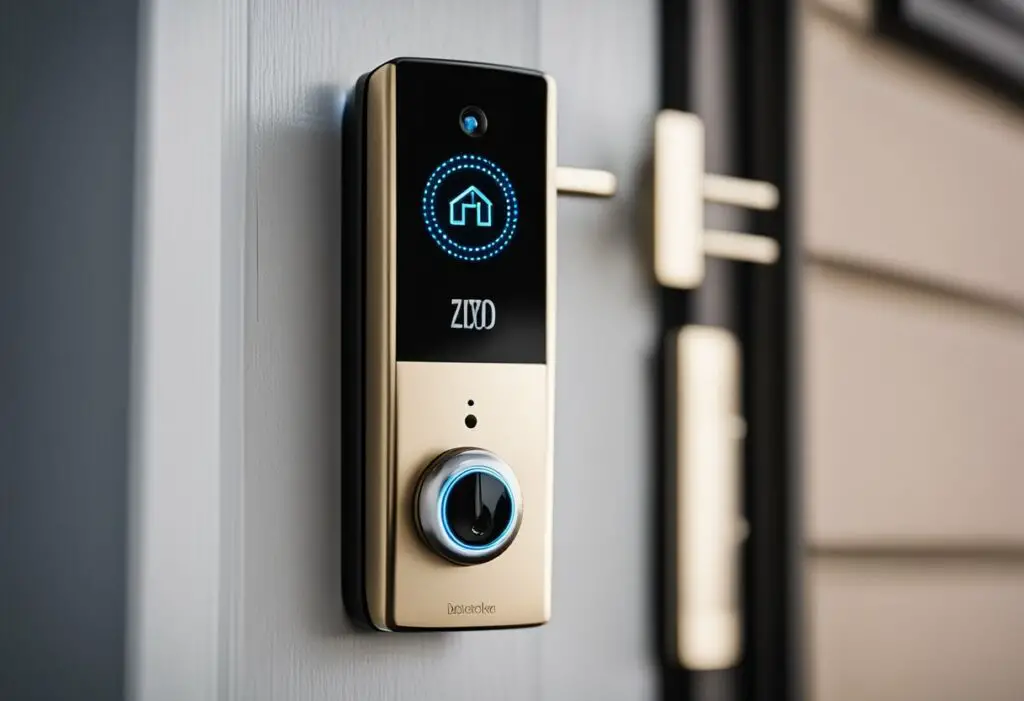
When it comes to smart doorbells, data protection and encryption are essential to maintain your privacy. Data protection refers to the measures taken to ensure that your personal information is not accessed, used, or disclosed without your consent. Encryption is a method of encoding data to prevent unauthorized access to it.
Some smart doorbells offer end-to-end encryption, which means that only the sender and recipient can access the data exchanged. This type of encryption provides an extra layer of security and ensures that your data is protected from hackers and other unauthorized individuals.
When choosing a smart doorbell, it is important to look for one that offers strong data protection and encryption. Make sure to read the manufacturer’s privacy policy to understand how they handle your data. Look for a doorbell that uses encryption to protect your data, and consider one that offers end-to-end encryption for added security.
It is also important to take steps to protect your data on your end. Use a strong, unique password for your smart doorbell account, and enable two-factor authentication if it is available. Keep your doorbell’s firmware up to date to ensure that any security vulnerabilities are patched.
By taking these steps, you can ensure that your data is protected and your privacy is maintained when using a smart doorbell.
The Role of OS and Software Updates
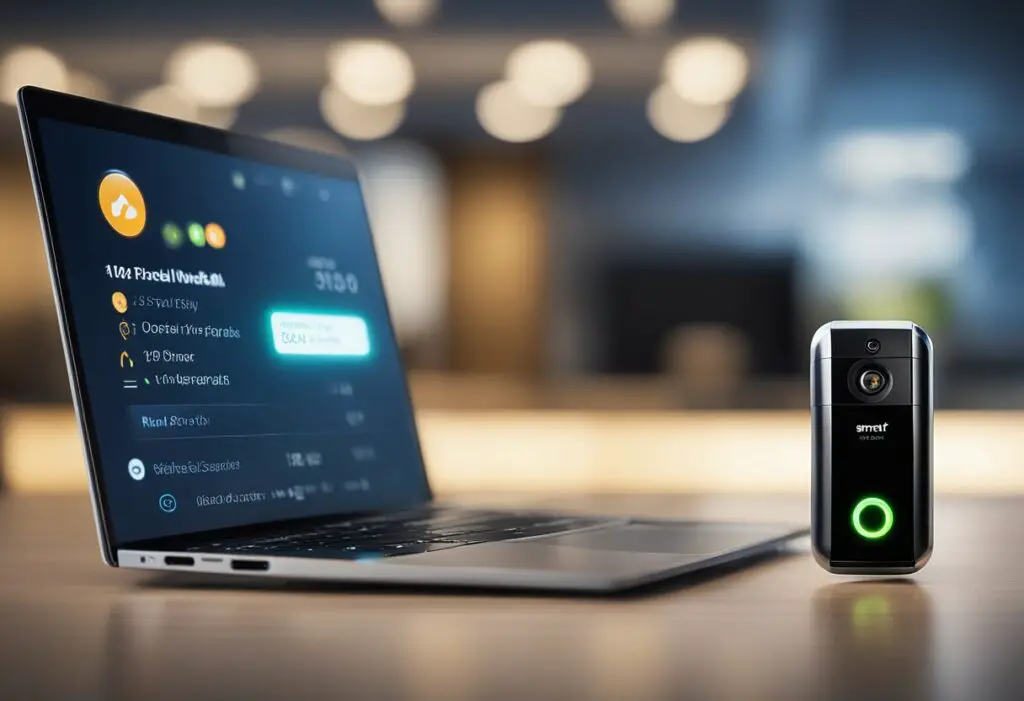
When it comes to privacy concerns with smart doorbells, the role of operating systems (OS) and software updates cannot be ignored. OS and software updates play a crucial role in maintaining the security and privacy of your smart doorbell.
Smart doorbells, like any other smart device, are vulnerable to hacking and cyber-attacks. However, manufacturers release regular updates to address the security vulnerabilities and fix bugs. These updates not only improve the functionality of the device but also ensure the security and privacy of the users.
OS and software updates often include security patches that address known vulnerabilities. These patches can prevent unauthorized access to your smart doorbell and protect your personal data from being compromised. It is essential to keep your smart doorbell up to date with the latest software updates to ensure that your device is secure and your privacy is protected.
It is important to note that some smart doorbells may not receive updates for an extended period, making them vulnerable to security breaches. Before purchasing a smart doorbell, it is essential to research the manufacturer’s update policy and ensure that they provide regular software updates.
In conclusion, regular OS and software updates are critical in maintaining the security and privacy of your smart doorbell. Keeping your device up to date with the latest software updates can prevent unauthorized access to your device and protect your personal data from being compromised. Make sure to research the manufacturer’s update policy before purchasing a smart doorbell to ensure that your device is secure and your privacy is protected.
Access to User Data
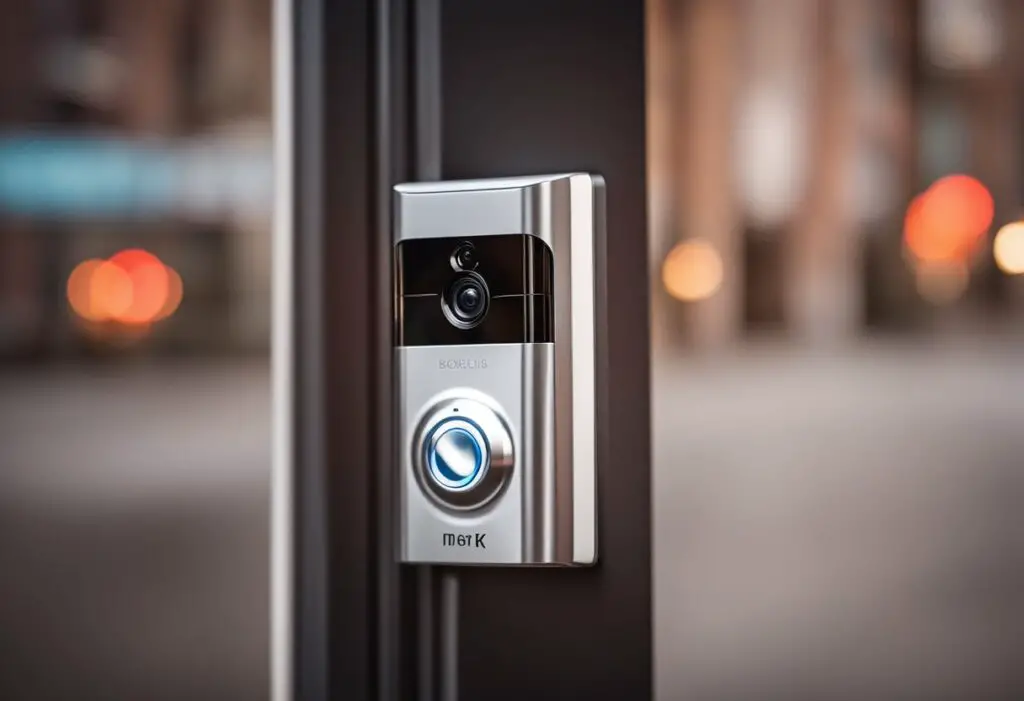
When it comes to smart doorbells, there are concerns about access to user data. Some models have been found to have security vulnerabilities that can expose user data, such as email addresses and names, to potential hackers. In some cases, this data can be used for identity theft or other malicious purposes.
In addition to this, some smart doorbells may also allow access to voice recordings and phone numbers. This is particularly concerning if the doorbell is placed in a location where sensitive conversations may be overheard. It is important to carefully consider the placement of your smart doorbell and to take steps to secure your data.
To protect your privacy, it is recommended that you choose a smart doorbell from a reputable brand and keep your device’s firmware up to date. You should also use a strong, unique password for your device and enable two-factor authentication if it is available. Finally, it is important to be aware of the data that your smart doorbell is collecting and to adjust your settings accordingly.
Overall, while smart doorbells can provide added security and convenience, it is important to be aware of the potential risks and take steps to protect your privacy.
Interaction with Law Enforcement
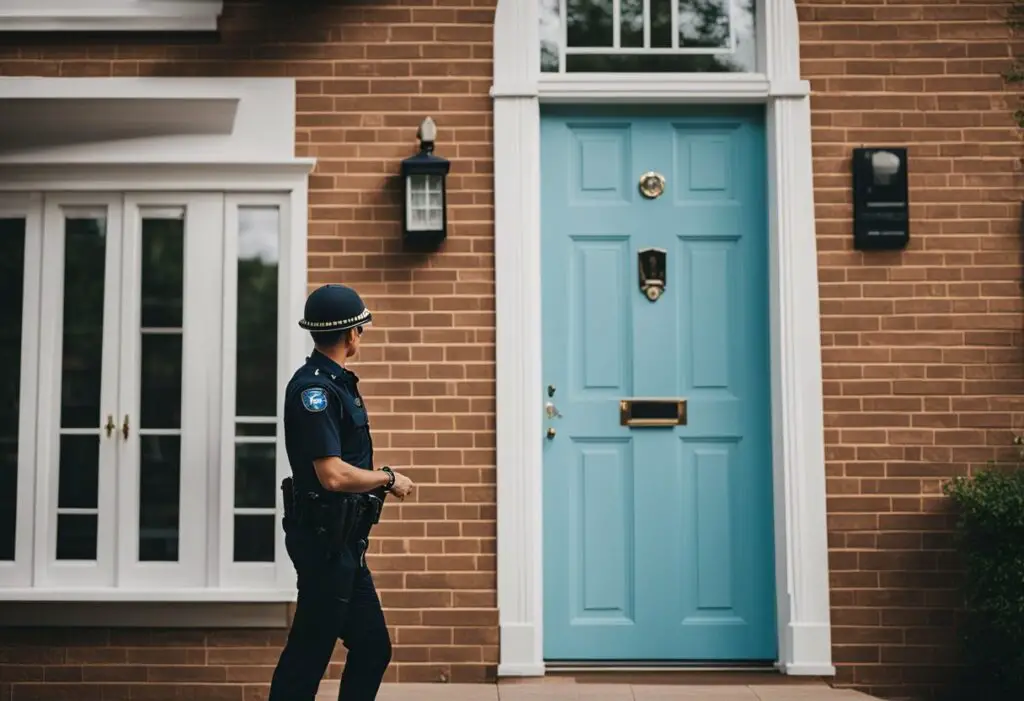
One of the most significant concerns regarding smart doorbells is their interaction with law enforcement. Police departments have partnered with smart doorbell companies such as Ring to access footage from their devices, which has raised privacy concerns among users.
Ring’s “Neighbors” app allows customers to share footage from their doorbell cameras with law enforcement officials. According to a Consumer Reports survey, 10% of video doorbell owners have shared footage with law enforcement. While some users may feel that this feature helps to keep their communities safe, others are concerned about the potential misuse of their footage.
One issue is that there are no clear guidelines on how law enforcement should use the footage obtained from smart doorbells. The Brennan Center for Justice has identified the potential privacy issues for numerous internet-connected devices, including smart doorbells. The summaries include how the devices work and the potential privacy concerns associated with them.
In conclusion, the interaction between law enforcement and smart doorbells raises privacy concerns. While some users may feel that sharing footage from their doorbell cameras with law enforcement officials helps to keep their communities safe, others are concerned about the potential misuse of their footage. There are no clear guidelines on how law enforcement should use the footage obtained from smart doorbells.
Smart Doorbells and Neighbours
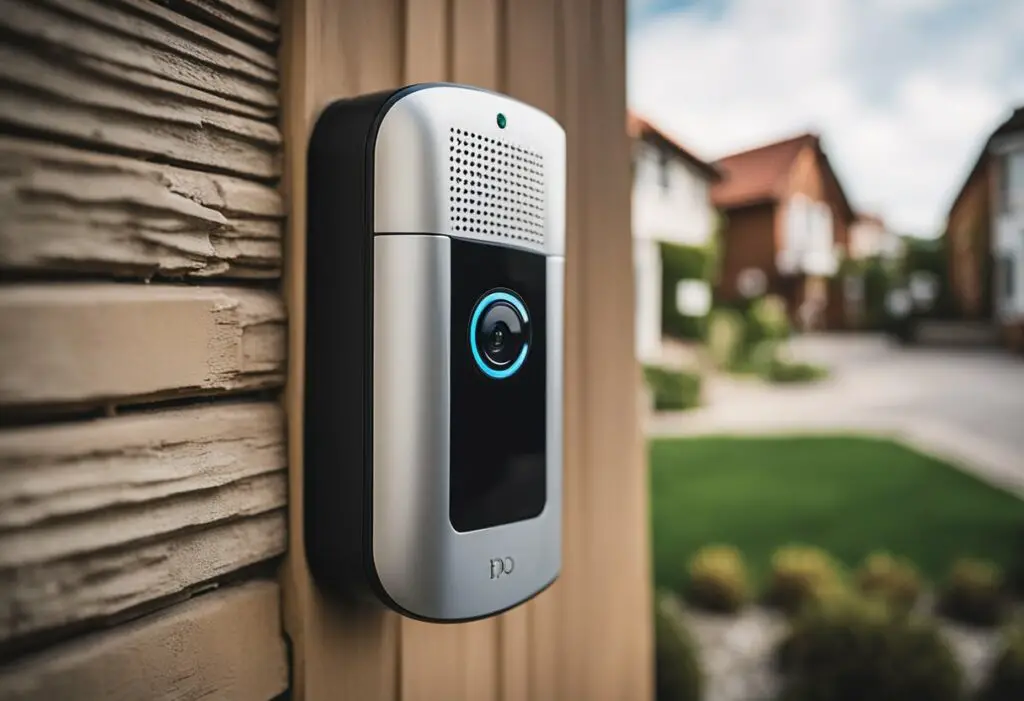
Smart doorbells have become increasingly popular in recent years, but they have also raised concerns about privacy, particularly when it comes to neighbours. If you are considering installing a smart doorbell, it is important to be aware of the potential impact it could have on your neighbours and their privacy.
One major concern is the potential for the doorbell’s camera to capture images of your neighbours without their consent. This could include footage of them entering or leaving their home, or simply walking past your property. If your neighbours feel that their privacy has been invaded, they may take legal action against you.
Another issue is the use of the Neighbors app, which is often used in conjunction with smart doorbells. This app allows users to share footage from their doorbell cameras with other users in their local area. While this can be a useful tool for detecting suspicious activity, it also raises concerns about privacy. Your neighbours may not want footage of their comings and goings to be shared with strangers, even if it is for the greater good of the community.
To avoid infringing on your neighbour’s privacy, it is important to use your smart doorbell responsibly. This may include adjusting the camera’s angle so that it does not capture images of your neighbour’s property, or disabling features such as motion detection when your neighbours are likely to be around.
You should also be mindful of how you use the Neighbors app. Avoid sharing footage of your neighbours without their consent, and be respectful of their privacy. If you do share footage, make sure it is for a legitimate reason, such as identifying a suspected criminal.
In conclusion, while smart doorbells can be a useful tool for home security, they also raise important privacy concerns. If you are considering installing a smart doorbell, it is important to be aware of these concerns and to use your device responsibly to avoid infringing on your neighbour’s privacy.
Research on Smart Doorbell Privacy
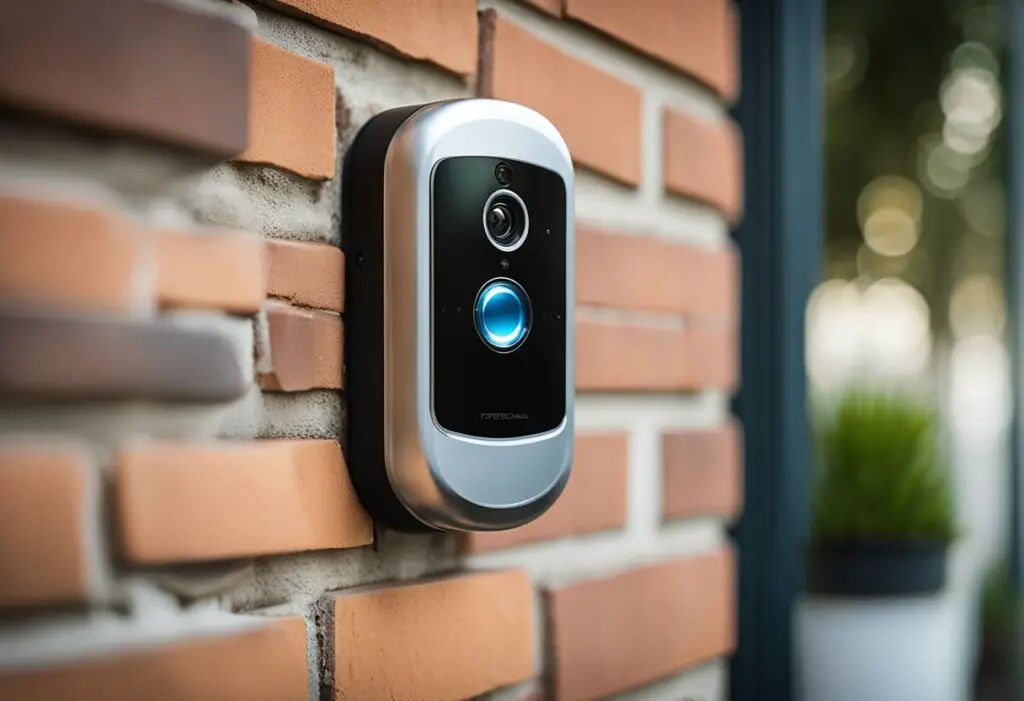
Smart doorbells have become increasingly popular in recent years, but concerns regarding their privacy and security have also risen. Research conducted by the Electronic Frontier Foundation (EFF) found that some smart doorbells collect and share personal data without users’ knowledge or consent. This data can include information such as your location, IP address, and device information.
The EFF also found that some smart doorbells have security vulnerabilities that could potentially allow hackers to access your home network. This could lead to the theft of personal information or even physical harm if the hacker gains control of other connected devices in your home.
Additionally, a survey conducted by the Pew Research Center found that most Americans are concerned about the use of their personal data. The survey found that 79% of adults are concerned about how companies use their personal data, and 64% are concerned about the government’s use of their data.
When it comes to smart doorbells, there are privacy concerns regarding the collection and sharing of data. For example, when someone approaches your door, the smart doorbell may capture their image and record audio. This raises concerns about whether individuals have the right to know when they are being recorded and whether they have given their consent.
Overall, research on smart doorbell privacy highlights the need for increased transparency and security measures. It is important for users to be aware of the data that is being collected and shared by their smart doorbells, and to take steps to secure their home networks.
Marketing and Advertising Concerns

Smart doorbells have become increasingly popular in recent years due to their advanced features and convenience. However, as with any technology, there are concerns about privacy and security. One of the main concerns is marketing and advertising.
Smart doorbells can collect a lot of data about you, including your location, your daily routine, and even your face. This data can be used by companies to create targeted ads and marketing campaigns. For example, if you have a smart doorbell that detects when you leave your house, you may start receiving ads for home security systems or smart locks.
In addition, some smart doorbells come with built-in trackers that can monitor your online activity and collect data about your browsing habits. This data can be used to create even more targeted ads and marketing campaigns. It is important to read the privacy policy of any smart doorbell you are considering purchasing to ensure that your data is not being shared with third-party advertisers.
Another concern is the potential for CEOs of smart doorbell companies to abuse their power and access user data. In 2019, it was reported that Ring, a popular smart doorbell company, allowed its employees to access customer video feeds without their knowledge or consent. This led to concerns about the security and privacy of smart doorbells and the potential for abuse by company executives.
Overall, it is important to be aware of the marketing and advertising concerns associated with smart doorbells. Make sure to read the privacy policy of any smart doorbell you are considering purchasing and be cautious about sharing your personal data with third-party advertisers.
Social Media and Smart Doorbells

Smart doorbells have become increasingly popular in recent years due to their ability to provide homeowners with an added layer of security. However, there are growing concerns about the privacy implications of these devices, particularly when it comes to social media.
Many smart doorbells come equipped with cameras that allow homeowners to see who is at their door, even when they are not home. While this can be a useful feature for security purposes, it also raises questions about whether or not these cameras are being used to spy on neighbors or passersby.
One potential issue is that some smart doorbells are connected to social media platforms like Facebook. This means that footage captured by the doorbell camera could potentially be shared on social media without the consent of the individuals involved.
Another concern is that the use of smart doorbells could lead to an increase in social media stalking. For example, if someone sees a stranger on their doorstep, they may be tempted to post a photo or video of the person on social media in an attempt to identify them. This could lead to the individual being harassed or even targeted by others on social media.
Overall, it is important to consider the potential privacy implications of using a smart doorbell, particularly when it comes to social media. While these devices can be useful for enhancing home security, it is important to use them responsibly and respect the privacy of others.
Conclusion
In summary, smart doorbells have become increasingly popular due to their convenience and security features. However, they also raise privacy concerns for both homeowners and their neighbors.
Users highly value control over their data, are concerned about data breaches and misuse, and avoid systems that they do not trust. Thus, it is important to choose a smart doorbell with strong security features, such as end-to-end encryption, to protect your privacy.
Additionally, it is crucial to be aware of local laws and regulations regarding smart doorbells and their use. For example, in some areas, it may be illegal to record audio without consent.
Lastly, it is important to be considerate of your neighbors when using a smart doorbell. Avoid placing the camera in a way that invades their privacy, and be mindful of the volume of any audio recording.
Overall, while smart doorbells offer many benefits, it is important to weigh the potential privacy concerns and take appropriate measures to protect yourself and others.
